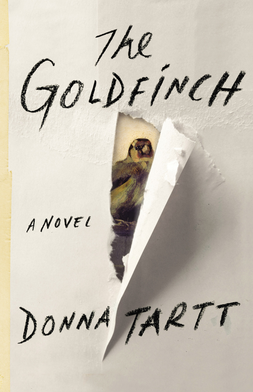
Robin Hyde's wistful and engaging novel, first published in 1938, has now become a New Zealand classic. Strongly autobiographical, it vividly conveys the intensely felt worlds of the adolescent - love, poetry and England - and the enthralling but sometimes painful experience of growing up female; and its picture of family life in early-twentieth-century Wellington, in all its physical details, emotional tensions, muddle and variety, lingers in the mind.
When I was at university, one of my favourite modules was one I did on Australian and New Zealand fiction. Having at that point never visited either country, those books were really my first introduction.
The Godwits Fly by Robin Hyde has become credited as an example of classic New Zealand fiction, which is odd given Robin Hyde isn't strictly speaking a Kiwi... but considering she was born in Cape Town in 1906, but living in Wellington before the year was out, I think we can overlook that. With me being the authority on these kind of things, naturally.
A godwit, by the way, is a migratory bird, not for use as an derogatory term for someone pretty hopeless, apparently that's a halfwit - who knew? Anyway, as you might have worked out by now, the title of the book is a metaphor for the nomadic nature of the antipodeans; the origins of the pakeha (the Maori term meaning white people, foreigners) are far away in Europe. So in The Godwits Fly, which is largely autobiographical, Robin Hyde tries to get across the sense of 'lostness', which was only exacerbated by being a teenager...
Later she thought, most of us here are human godwits; our north is mostly England. Our youth, our best, our intelligent, brave and beautiful, must make the long migration, under a compulsion they hardly understand; or else be dissatisfied all their lives long. They are the godwits. The light bones of the mother knew it before the chick was hatched from the eggshell.
Against the backdrop of the Boer War and World War One, Hyde fills the book with small details from the books being read, to the food being eaten, to the fears being felt. I wonder if this book has become a 'classic' because of the way it captures and teaches the history and culture of New Zealand at a time when the whole world was looking to Europe, sending the message 'we fought in those wars too'. By saying that last bit I don't mean that that is the book's central message, but it's important to be reminded of it nevertheless.
Having read this novel, it was not surprising to me when I found out that Hyde was, first and foremost, a poet because the book is so lyrical and beautifully drawn. It's far from being a flat historical account, this is a touching story.
Looking back, I think I was unfairly bored reading parts of the book. Maybe it's a literal geographical thing - how could I get fully involved with a set of characters living somewhere I've never been on the other side of the world? I wonder if I went back and read it, (which I know I won't but I like to entertain these ideas sometimes...) having now been to New Zealand, if I could access the book on a deeper level.
6/10










